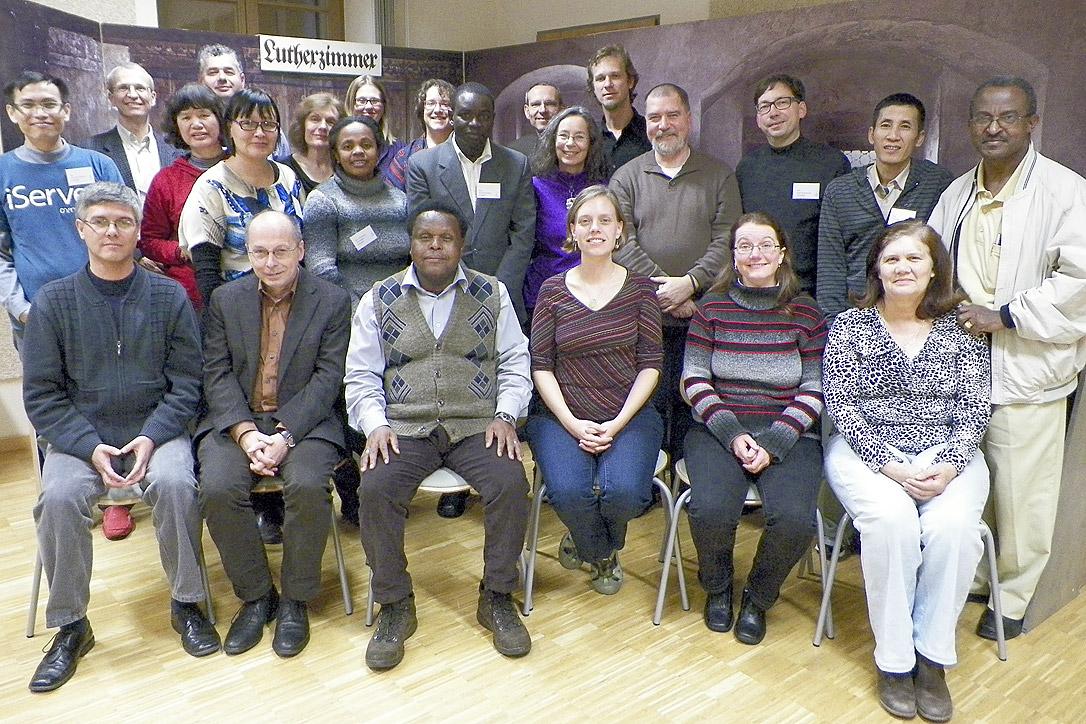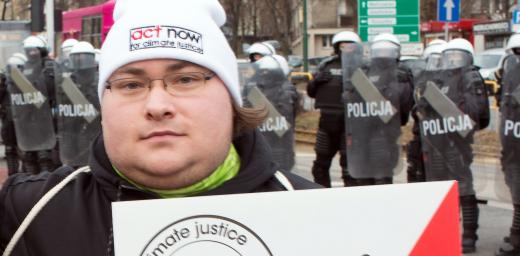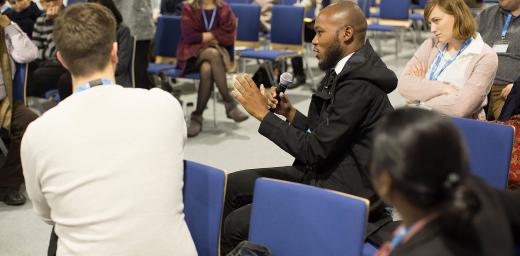Luther Decade Seminar – An Inside View

21 pastors from around the world at the LWF seminar on Martin Lutherâs theology in Wittenberg. Photo: Thomas Böhmert
By Rev. Thomas Böhmert
During the Luther Decade, which culminates in 2017 with the celebration of the 500th anniversary of the Reformation, the LWF has organized a series of seminars to help Lutherans from across the world to connect with one another. The aim of the program is to deepen participants’ understanding of Luther’s theology, its impact on Christian faith and world history.
I took place in the eighth of this seminar series, held in Luther’s home town of Wittenberg, Germany, in the first two weeks of November 2012.
There were 21 of us: participants from Lutheran churches in 17 countries outside Germany–Argentina, Colombia, USA, Greenland, Denmark, Sweden, Slovakia, Hungary, Ethiopia, Senegal, Madagascar, South Africa, Myanmar, Thailand, Taiwan, Latvian Church Abroad and Australia–and three German states.
We were led in the study of Luther by Professor Dr Theo Dieter and Professor Dr Sarah Hinlicky-Wilson from the Ecumenical Institute of the LWF in Strasburg, Germany.
The two weeks were filled with impressions of Luther’s life and work, his environment and historical context. Activities included reading and discussing selected writings of Luther (in English translation); visiting various Luther sites in Wittenberg, Erfurt and Eisenach; worshipping together and also with local congregations in Wittenberg, as well as visiting two small country parishes in the surrounding countryside.
We also met some of the leaders of the LWF, the International Lutheran Council (ILC) and the German Lutheran church. Probst Kasparick from the Evangelical Church in Central Germany described some of the challenges his church faced. Its 800,000 members live in the least Christian part of Germany.
Today, less than 20 percent of the population is Christian (mostly Lutheran) in the area around Wittenberg, while the rest are atheist or simply not engaged or interested in religion. One African pastor asked what steps were being taken to evangelize the population— especially the youth—but received no real answer. This perhaps showed one of the differences in attitude and confidence between the growing African and declining European churches.
We received many insights—especially into Luther’s sharp and clear mind and powerful pen—into his co-workers, especially Philipp Melanchthon, and how the work of the reformers influences the history of the Western world to this day.
In Luther’s time one had to undergo instruction in rhetoric and grammar, in philosophy and what we would call natural sciences, before being permitted to study theology. This deep training process enabled Luther to think clearly and argue powerfully.
His foundation was the Scriptures, which he interpreted with a certain freedom but also with great care. He was very familiar with the church fathers and canon law but Luther rejected anything that stood in the way of the key scriptural insight that humans are justified by grace through faith. The familiar distinction between law and gospel—which bears itself out also in the distinctions between civil and church government—and other insights have shaped the development of government and the relationships between church, state and the people since Luther’s time.
While Luther accepted some of the societal structures of his day and worked within them, his appeal to conscience opened the way for individual rights. Possibly one could trace the influence of the reformers within the much later development of human rights and democratic societies. It is probably no accident that many 18th and 19th century scientists and thinkers grew up in Lutheran manses.
The personal highlight for me was interacting with so many different Lutheran pastors and lecturers, both male and female, from all corners of the world. Even though our cultures, experiences, languages and—to some extent—theological positions were quite different, there was an instant connection between us, a bond of love through Christ that is difficult to describe. As Christians we are truly part of something—the church—which transcends all human boundaries and divisions. It is a gift that we can bring into our ever more globalized world, to help overcome many existing divisions.
While we in Australia are a small Lutheran church—the largest is Sweden with six million members—we are one of the wealthier churches, blessed with many resources and public acceptance in our country.
We are also blessed with a brilliant teaching institution in Australian Lutheran College that can offer much to our neighboring—especially Asian—sister churches. Some of my colleagues at the seminar had never had the opportunity to explore Luther’s writings or key parts of our theology in depth, which made me even more appreciative of the quality of teaching I have received.
However, it seems to me we can also learn much from other Lutheran churches. I heard from a pastor of the very small Lutheran Church in Senegal how Christians there lived and interacted peacefully and positively with the Muslim majority population.
I learnt how the Mekane Yesus church in Ethiopia [The Ethiopian Evangelical Church Mekane Yesus] has adopted a more charismatic approach in the face of declining membership and enthusiasm over a decade ago. Since then it has become the fastest growing Lutheran church in the world. This is despite facing difficult conditions in a country with over 80 language groups, where pastors and Christians at times face death threats and destruction of property.
I learnt of the issues encountered by the South American pastors, who are working in countries with Catholic majorities and great social inequality, and I learnt too of the problems we share with the German and American Lutheran churches.
I also learnt that most Lutheran churches around the world ordain women and receive many blessings from their ministry, while others, like the LCA, are working through this issue at this moment. I also noticed that there are a number of churches who hold membership in both LWF and ILC.
I thank the LCA for the opportunity to participate in this seminar. I especially thank German Lutheran pastor Hans Kasch, who organized it all on behalf of the LWF. It has been a formative experience for me and I hope that next year another pastor of our church will be able to travel to Wittenberg for the ninth seminar of the LWF.
Rev. Thomas Böhmert serves with the Bordertown Lutheran Parish in South Australia, comprising Trinity Bordertown and St Pauls, Keith.





